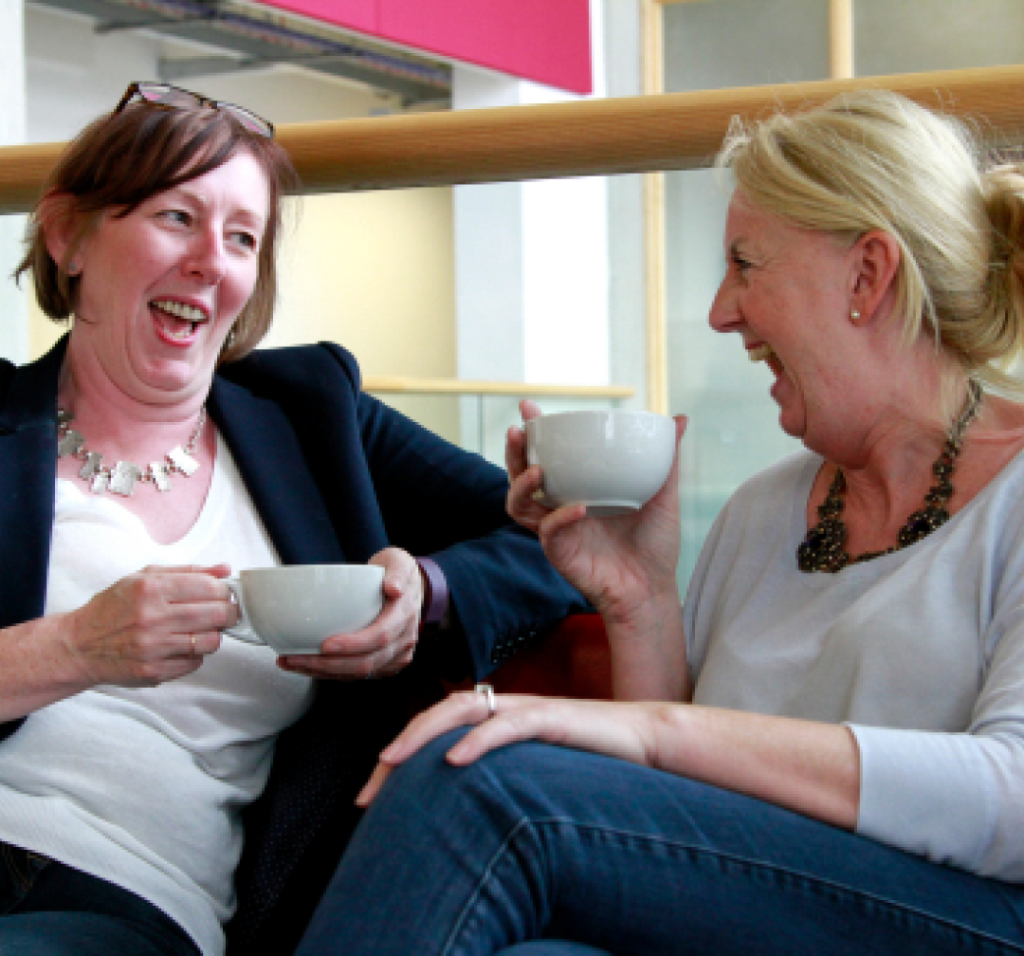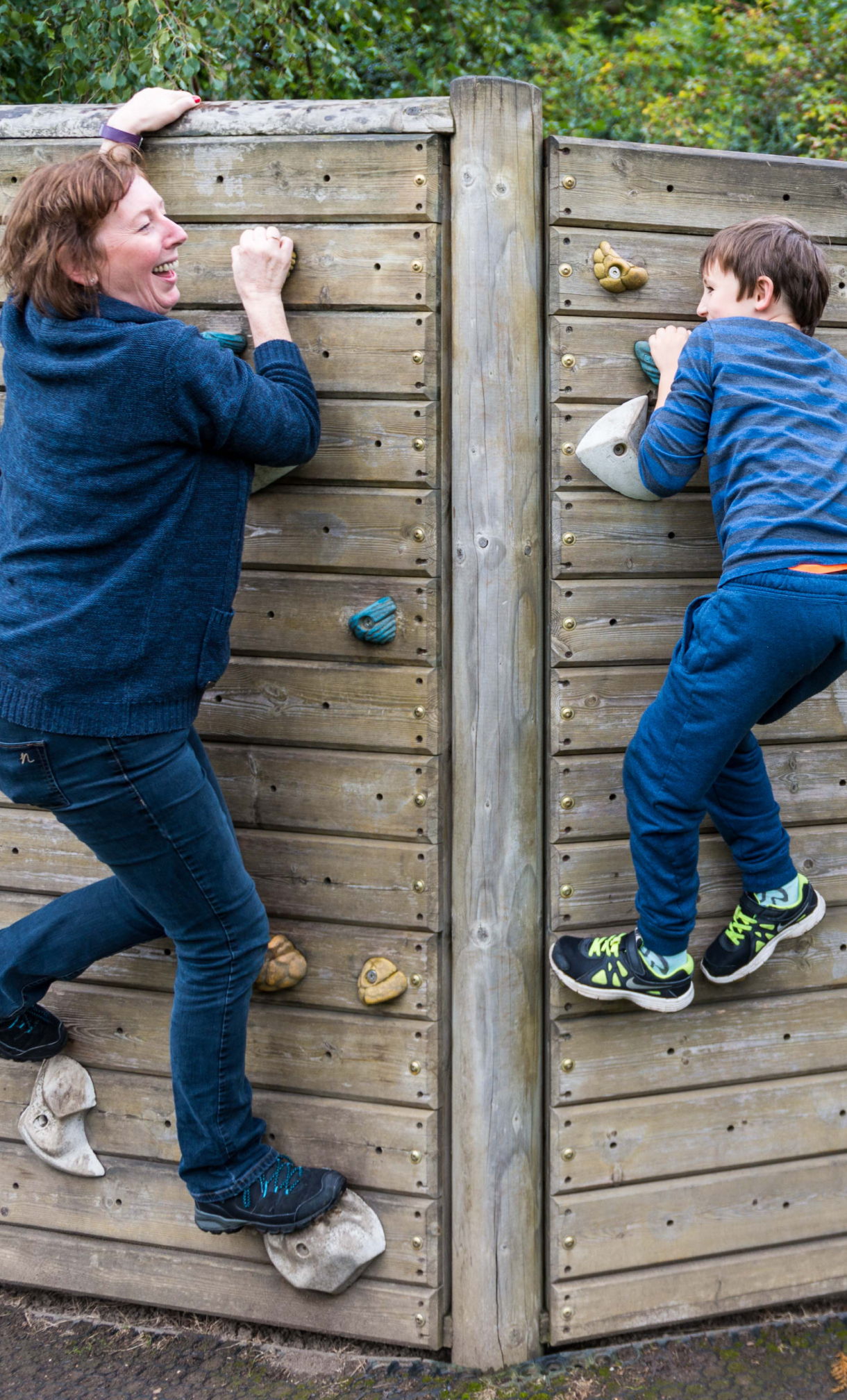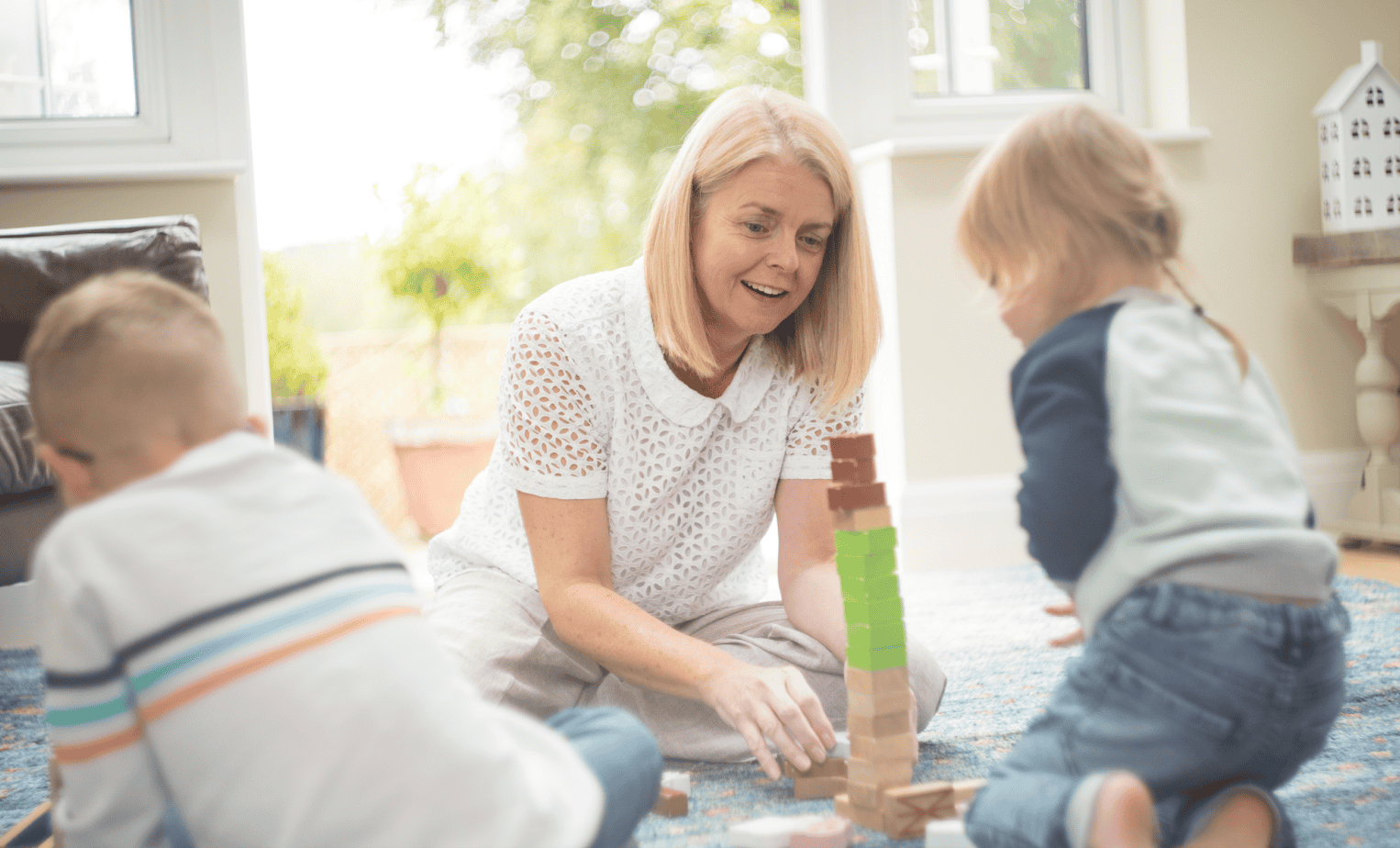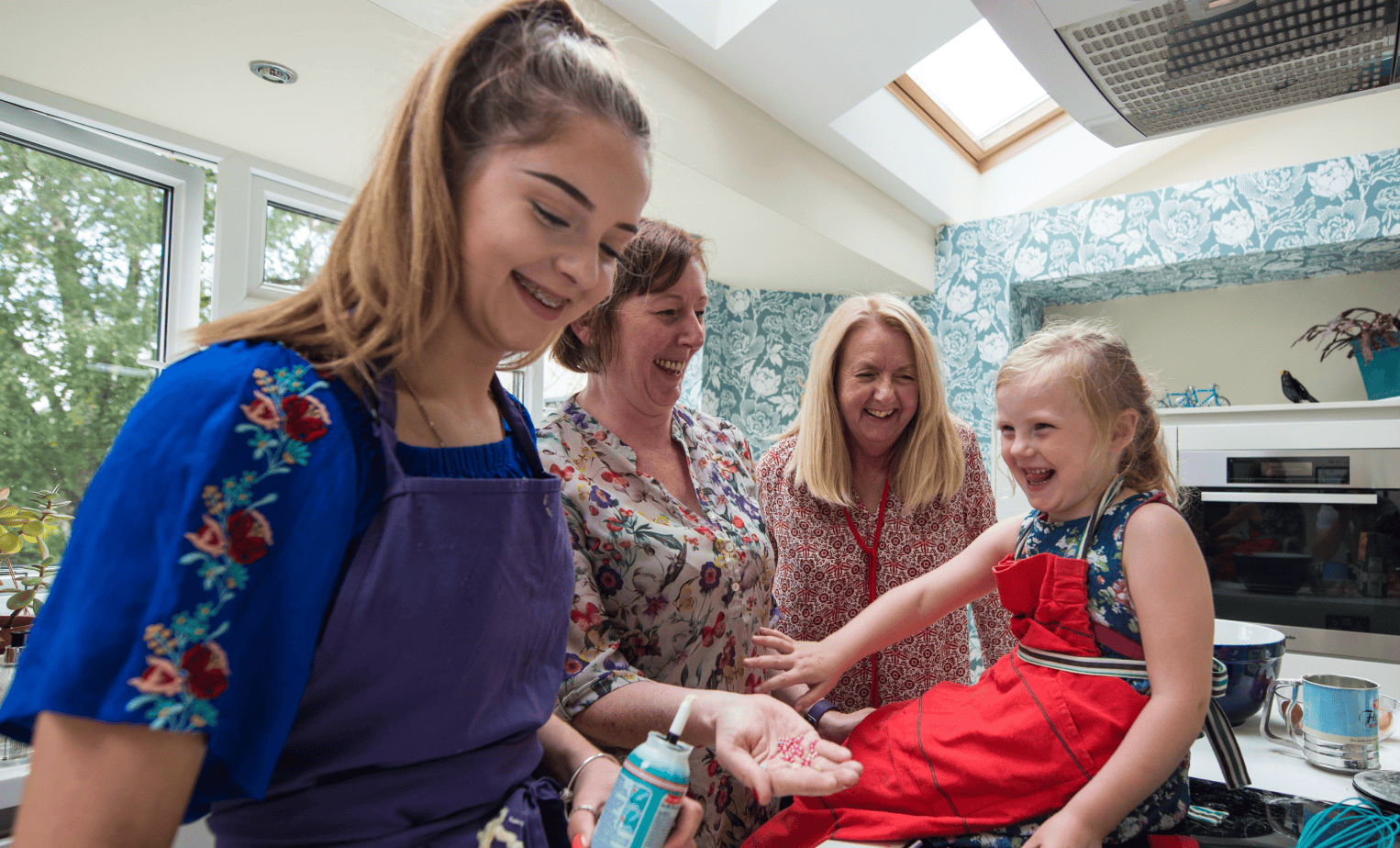Alison says:
I have worked with children living within the care system for over twenty-five years in every level from residential worker to senior manager and now owner. I remain as passionate about it as I was on day one as a rookie care worker. For the latter part of my career I have worked as a contractor supporting organisations with their recruitment of foster carers, sometimes providing training, sometimes in managing a team or by dealing with conflict between families and agencies. After working with Angela in one organisation for a year, I knew that we shared similar values and the vision to improve outcomes for children and foster carers. When she suggested that we could start something new that could embrace our vision and values, I was excited that we could create something that we truly believed in and that had at the centre, the values that we both share. I knew I could combine my knowledge and experience from the range of roles I have had with the level of experience and passion that Angela has.
Angela says:
I had a sliding doors moment in 2013. I was a self-employed consultant in the adult care sector supporting organisations to transform and build high performing teams. At a conference, I sat next to an owner of a fostering agency and she asked me if I might be interested in meeting her business partner with a view to me undertaking some transformational work for them. What was initially a 12 week piece of work for the fostering agency, led to me becoming their CEO and staying for two and a half years.
I recall being very surprised by the sector in general but in particular the low morale of social workers and the perceived lack of foster carer support. The outcomes for children leaving care, I felt, were far too low and placement breakdowns were remarkably high. I had fallen in love with the children we supported and wanted to do so much more for them. It was whilst in my CEO role that I met Alison. She inspired me with her determination to challenge low expectations and work to deliver excellence. I decided that if I wanted to really positively influence the sector then the best way would be to set up a brand new fostering agency that could be focused on creating the right culture for foster carers and social workers to have high levels of wellbeing and thus achieve consistency and fantastic outcomes for young people. I knew that I would want to work with Alison, thankfully she shared the same vision of what we could achieve and so To the Moon and Back Foster Care was born.
Why do you think there is a need for another fostering agency?
Alison says:
There is a short fall nationally of between 7,000 to 10,000 foster families. I think there is room for an organisation that can provide bespoke care for its families and offer the personal touch. It feels that so many agencies are having to be predominantly focused on targets for investors and shareholders, we are simply offering people another choice, a choice that I think a lot of people are wanting. I know from my own network that what families and social workers want is to work for an organisation that puts wellbeing, good practice and young people at the heart of what they do. Many organisations promote that they do this and individual staff often do, but in large organisations it can be easy to get lost as an individual.
We have a terrific level of expertise between the directors and our team of staff and we recognise the needs and desires of children in care and foster carers. e have included in our team, care experienced people, foster carers, consultant therapists/play therapists all of whom add to our discussions and decision making, so that the voices and needs of children and foster carers are heard and acted upon.
We all have a hands on approach and as a director I would never ask any of the team to do anything I would not be prepared to do. I also truly believe as directors we expect our children living in our foster homes to have the level of care we give our own children.
Angela says:
It is important that foster carers have access to real choice. Whilst it appears there are lots of different fostering agencies, many of what appear to be independent are owned by large organisations which despite the intention to maintain the individual brand, the culture eventually changes as the leadership becomes more influenced by the decision making of the shareholding board. There are some fantastic people working in these organisations, but their ability to truly influence decision making is limited. I think what we are offering is a culture that everyone would like to be a part of and we are aiming to work innovatively in order to keep costs low so that our LA partners also value what we do because it gives great value for money. Fantastic outcomes do not have to cost more and there is room for more value for money in today’s world of austerity without losing quality.
You are based in Cambridge but you cover a wider area than Cambridgeshire, how do you provide the level of support to foster carers outside of Cambridgeshire?
Alison says:
Cambridge is the office base but most of the work with families happens in their home, the office is a statutory requirement but the real work lies out in the community with our young people, foster carers and collaborating partners. Support to our families is our priority and we use technology as well as face to face visits to ensure we have a local feel. I can facetime and skype a family quickly to talk through an immediate issue, but can arrange follow up and a visit as soon as it is convenient without them losing the immediacy of good advice. Our records are all electronic and our team can access them 24 hours a day. Support groups and training is done locally, in which ever county we are working in. We take time to get to know the area and utilise the resources available to us. We centralise our conferences and open them up to other organisations and as a result we have found working with local services easier because we have met them and trained with them. We have a closed on line group available to keep everyone linked in and offer a platform for peer sharing and questioning.
Angela says:
Our office in Cambridge is our administrative base which for our Cambridgeshire foster carers is a good place for them to meet. However in other areas we utilise good spaces as we need them for meetings or training. We work with local communities to identify good spaces that will not be expensive, ensuring we can provide the financial resources where it is needed most and not wasted in empty or infrequently used spaces for which we have to pay rent.
It is very important that our support team can be accessed by our foster carers. We tend to look for supervising social workers who live close to the foster carers they support, so that they can spend more time in foster carers homes rather than in their cars in traffic trying to get to work.
We keep the number of foster families per supervising social worker at a lower level than most so our foster carers can rely on the ability for us to support them well. Our flexible working system means we can be available when they need us most, plus we enable our team to make decisions quickly which means there is no having to wait for decisions.
We work proactively so that we can identify potential challenges and we work to prevent them happening rather than waiting for it to happen and having to be a crisis focused service.
Our support comes out of the great relationships we make with foster carers, we get to know each other very well and the most important relationships are between the supervising social worker and the foster carer. Geography is no long a major issue when building good relationships.
In your Ofsted inspection report it says that your Statement of Purpose is embedded throughout your service, how have you made your values and mission so central to what you are doing?
Alison says:
The statement of purpose is not a tick box document; it was the starting point for Angela and myself to decide what was important to us both. Once we were clear of what we believed the right values and mission were, it was easy to ensure everything we did aligned with what we believed in.
Every document came from the starting point of how we keep children and foster families central to our service delivery whilst exceeding the minimum requirements in line with legislation. Because we started with the values and beliefs of how we should work everything else developed. We always say building great relationships is not rocket science and we truly believe that if you care for people and recognise their value, that people will shine throughout the organisation.
Angela says:
The values of an organisation are central to the behaviours of the team and the outcomes for those you serve. I have seen many organisations whose values on paper are incredible, however in practice, they do not exist. The values of an organisation can be felt by everyone in the organisation. We can feel if we are more than a pair of hands, or if we are truly valued and cared for in an organisation. I have met people who try relentlessly to do their absolute best but feel unsupported and taken for granted, consequently their morale is affected and their wellbeing suffers so that they have to give less of themselves to the job for their own self-protection, as a result the foster carers and children suffer. There is a great Scandinavian pedagogy term for the ethos, or attitude of an organisation. It is called Haltung. I agree with Eichsteller, who says “In our interactions with others, our ‘Haltung’ will have an influence, because the way we think about others and our relationship with them affects the way in which we engage with them. Most children, for example, will know when we genuinely care about them or when we pretend to care. In a sense, our ‘Haltung’ shines through in our relationships with others, which in turn colours their behaviour towards us”.
What has inspired you most about your foster carers?
Alison says:
The families we have approved all inspire me, they are individual in how they foster but all have a sense of wanting to provide an outstanding level of care. Our families have all gone the extra mile with tremendous humility simply seeing it as part of their role The level of commitment to each child placed has been impressive and this has meant that despite some of the tough times our families have dared to care and this has enabled the young people to settle despite how hard that might be.
Angela says:
I am in awe of anyone who can give a loving home to another child and build great relationships from a starting point of having never met that child before. It takes a great family to build these quality relationships with a child who may have experienced trauma in their lives. They see themselves as ordinary but to me they are far from ordinary. I am inspired every day to do the best for them, because they deserve it.
What does being Trauma Informed mean for you and how does it add to the service you provide to young people and foster carers?
Alison says:
This is a non-negotiable part of fostering for To The Moon and Back. Being trauma informed is about understanding what children have gone through prior to coming in to care and how that has shaped who they are. I do not believe you can foster without appreciating what abuse, neglect, loss and separation does to a child. It does not need to be at a high academic level but being trauma informed means sharing with foster families and our collaborating partners our knowledge and ensuring they and ourselves have access to up to date information about how adverse childhood experiences affect the body, the brain the ability to regulate emotions and how the body can move on from trauma to a place where children can achieve amazing things.
Angela says:
Being aware of the impact trauma can have on an individual is a basic point of entry I feel for anyone involved in fostering. The impact of trauma felt by a child who has experienced neglect or abuse is individualised and as such we have to be open to the impact this may have on behaviour, ensuring that we see behaviour as a communication of what is being subsequently felt by the child.
Being informed means we can work in the best way for as long as it takes to support the child to come to terms with what has happened to them and go on to fulfil their potential in life. Being trauma informed helps us to support our foster carers and staff to deal with the potential impact working with a child’s trauma can have on them too. We build trust in our relationships and work to ensure that we reflect and engage positively at times of supervision so that we can support opportunities to improve wellbeing and ensure our team never feel alone in their work.
You have said it takes a village to raise a child, what do you mean by that?
Alison says:
Raising any child is hard and I know both as a parent but also a long standing social worker that children and those raising them need help. This can come from a teacher who gets the child, a local scout group who welcomes the young person to their troop, or the neighbour who offers a cup of tea to a worn out foster carer and provides some space to laugh or cry. Achieving great fostering outcomes are not just about the work of the main carer but involves their family friends, our staff and lots of others in the community who have an impact on the young person.
Angela says:
I wrote a piece about my childhood living in a village and the feeling of safety and support I had when growing up. It is an African proverb that means there are so many influences on a child that helps them form as an adult. These influences start with the closest family and as the child grows older more influences come from the circles of acquaintances they make from teachers to friends. People come and go depending on what is happening in the child’s life but they will always remain as part of the influencing on their life.
I feel that as a community we should support the children living in care. They do not have the same opportunities that their peers have. Children in the care system may have been out of education for a while or have had disruption to their education as a result of their experiences at home. As a result they may not have the same opportunities as their peers to try new things or get chances to visit places. Local businesses and services have the chance to inspire children and children in care may need a little bit more time or a slightly different approach. I have been very lucky to make some wonderful connections in different businesses, all of whom have said that they would love to be able to support children who are interested in certain careers. I am always keen to talk to anyone who feels they can be part of the influencing village around the child.
Creating an environment or culture where great levels of wellbeing exist in foster carers, young people and staff is a great aim, what steps do you take to ensure your own wellbeing is at a high level?
Alison says:
This is something that I work at and don’t always get right. I know I need to eat well and get sleep, and exercise. Some days I do great at this, other days I fail miserably. I have a built in network of support both personally and professionally.
I know as a working mum I cannot do everything so I have help from people and accept that I don’t run a perfect house. I am also in a strong network of professional support. I attend a CPD group and have been there for over ten years. They push and challenge and support me to improve what I do. I have a social work mentor I can talk to and both professional supports ensure I can listen and support families knowing when I feel overloaded, stressed or impacted by the trauma. I have a place to go and safely manage the feelings and make sense of what I am doing. Angela and I talk a lot and also laugh, we enjoy working together despite the intensity of this at times. I do what I preach, and share via my training and supervision of social workers the good practice and help them with offloading the trauma.
I am an advocate of mindfulness, I discovered this thirty years ago after a personal loss in the family and developed a love of meditation, I wish I did this every day but I do it when I can. I fit in when I can, my personal time whether this is a shopping trip or a quiet coffee with my friends.
It sounds like I have it sorted. There are days when I do nothing that meets my wellbeing at all, I eat cake, chocolate and get grumpy, and that is because I, like everyone else, am not perfect!¬!!!!!
Angela says:
I am the first to say it is easier to support someone else than for me to follow my own advice… I have always worked long hours and whilst I am aware how this can impact on my wellbeing, when something needs to be done it needs to be done. However I do try to balance this.
I have always liked to be active. I used to run but now cycle. I find cycling very enjoyable, so much so I cycled from London to Paris recently raising funds for a charity. I enjoy walking in the fresh air regardless of the weather which gives me the energy I need. Whilst I am not a practitioner of meditation I like listening to music and reading and love the mindfulness of being creative. I reflect often and attend each month a meeting with a group of people who challenge my thinking and support me by coaching me.
Alison and I look out for each other and make sure that we maintain our wellbeing levels so that we are always performing at our best and role model this for everyone we support.

What has been your biggest challenge this year?
Alison says:
Balancing, giving my children and husband time, whilst also setting up To The Moon and Back. I obviously want my children to see me and have time with me, I want to see their nativity plays, take them to the park and be around for them, whilst also working. I think many families have the same struggle. My children still give me cuddles and like being with me, so I must have achieved something good for them whilst working.
Angela says:
I have felt frustrated by the portrayal of the image that all independent fostering agencies are focused only on the profitability of the company. I deliberately wanted to give foster carers a choice and an opportunity to help us build something special that may challenge the sector, to see that it is possible to achieve great levels of support and outcomes for children without it having to cost LA’s more, furthermore that it can be done morally with good ethics. Alison and I have funded everything we have done so far ourselves, which hasn’t been easy. We have not always gone the easy route, but I believe it has been worth it and as more people choose us, clearly they think the same too.
What has been your biggest highlight in 2018?
Alison says:
Seeing our first young person thrive with our first foster family. They trusted us as the first family to join us and to see a young person arrive and settle was amazing.
Angela says:
Having our first Ofsted Inspection and being formally recognised for so much of what we had set out to achieve. In particular being recognised as providing levels of support that foster carer’s value and having great outcomes for our children.
What is in store for To The Moon and Back in 2019?
Alison says:
More of the same, I would love to meet and support more families to join our organisation and provide a wider range of homes for children and young people. We turn away too many referrals for children that we could provide great care to with more families.
Angela says:
We have an exciting year ahead. We have inspired people in Essex, Hertfordshire and Surrey as well as Cambridge to consider fostering with us and we intend to do more of that. We are grateful for the support we have had so far. Knowing that people have belief in our ambitions, inspires me to push to get it right.
We have some more fantastic conferences lined up, with the first for 2019 on April 3rd. We plan to expand our team with more like minded people, keen to continue with us to go to the moon and back for our children, foster carers and staff team.


